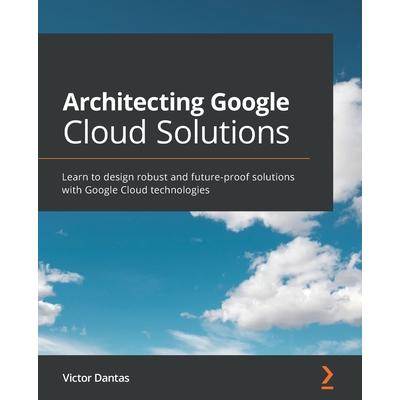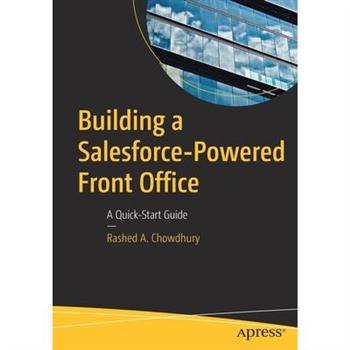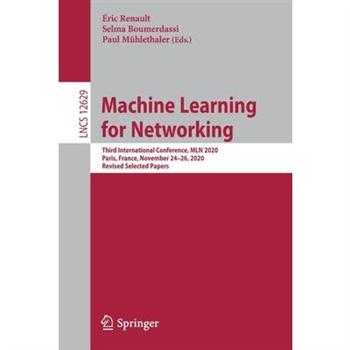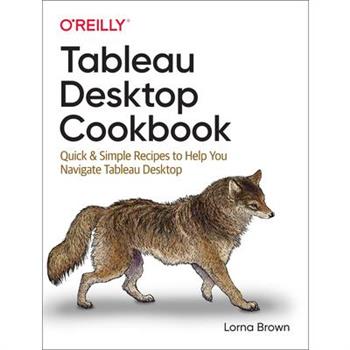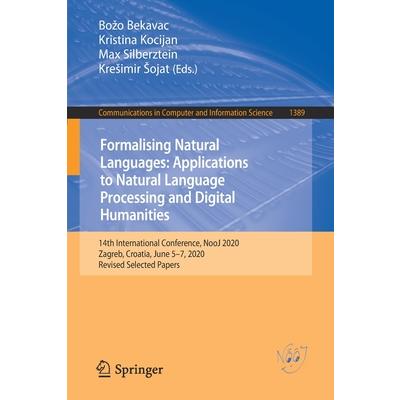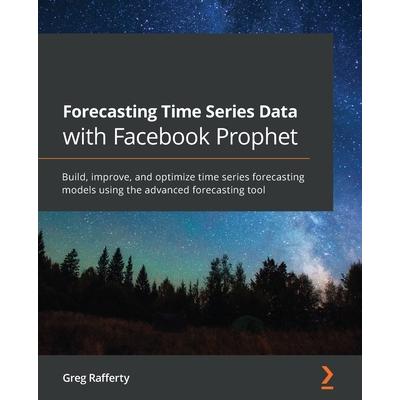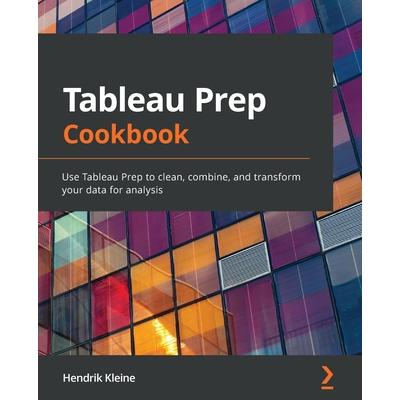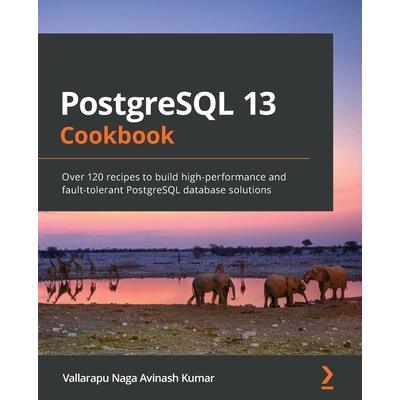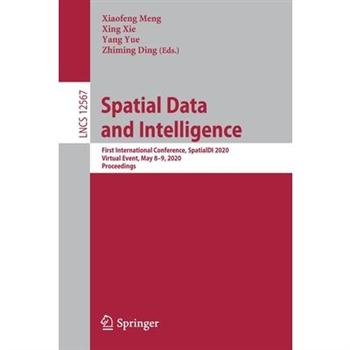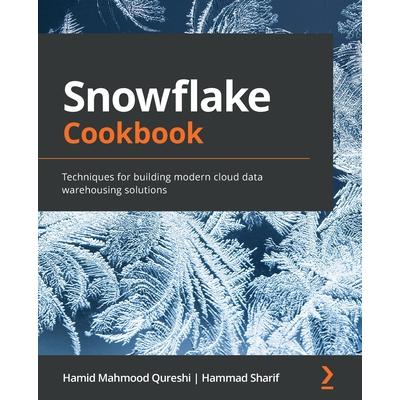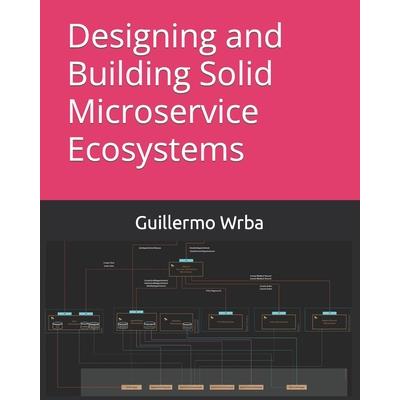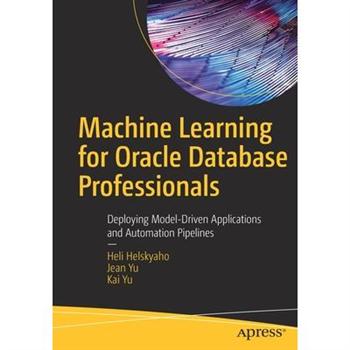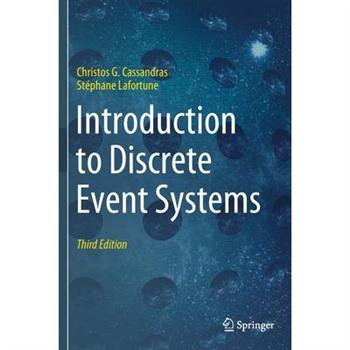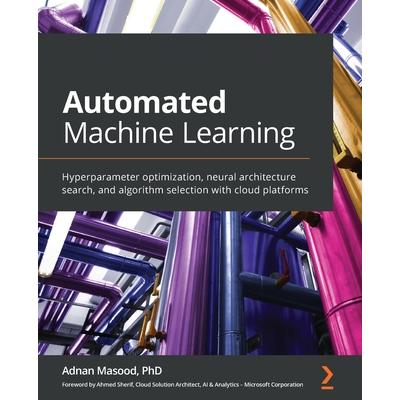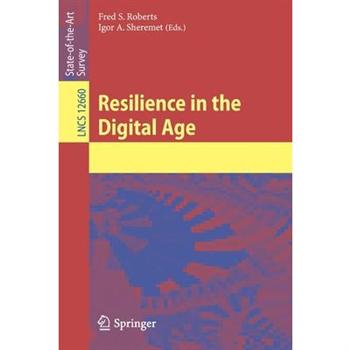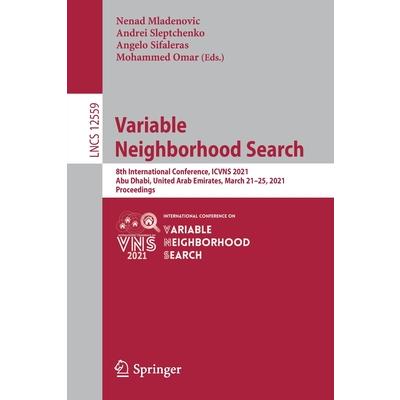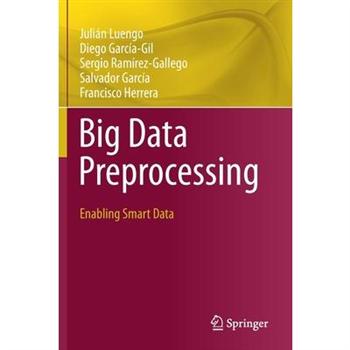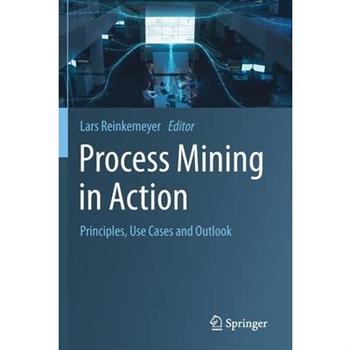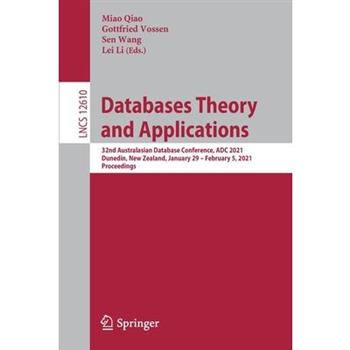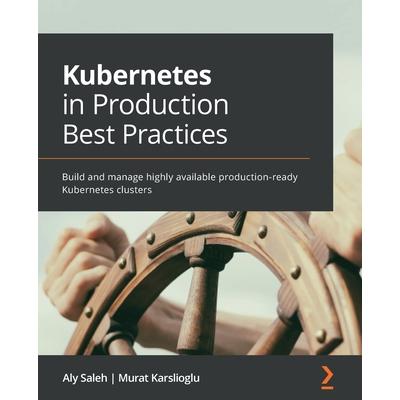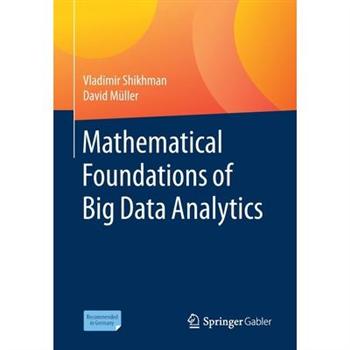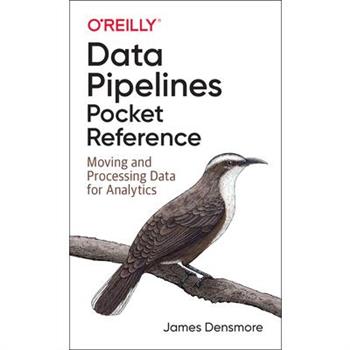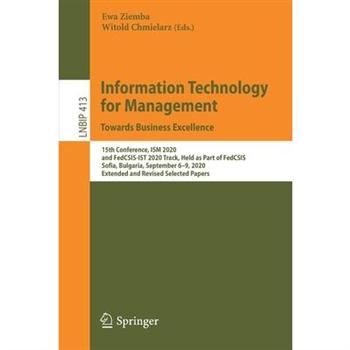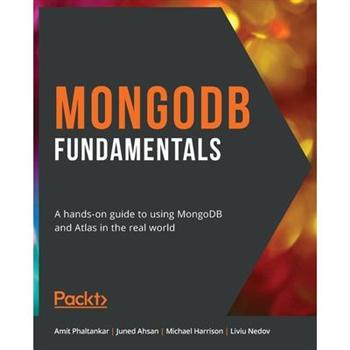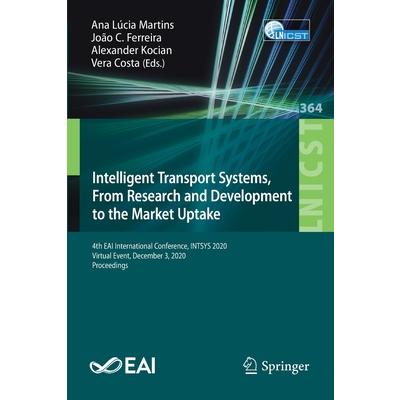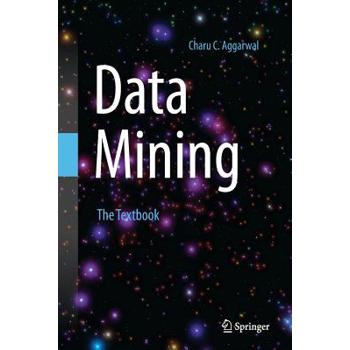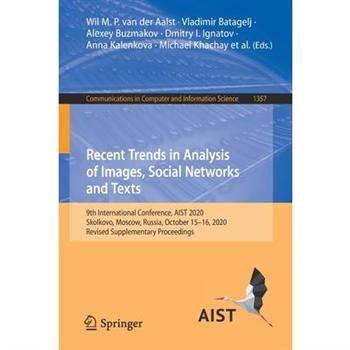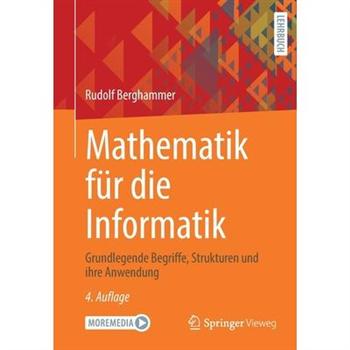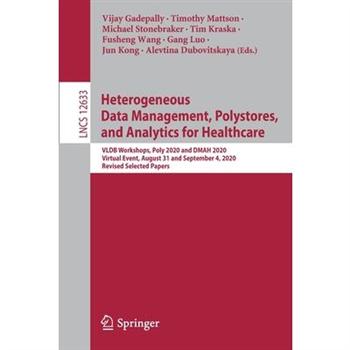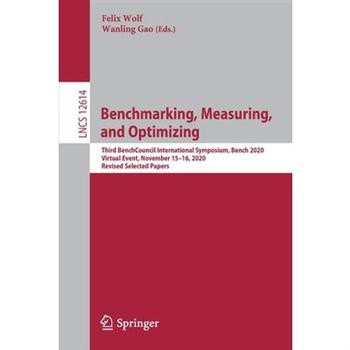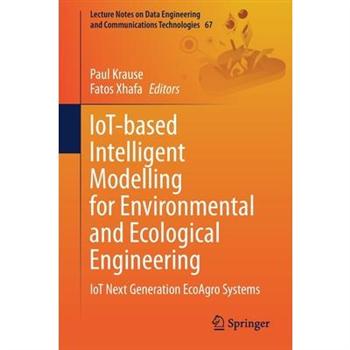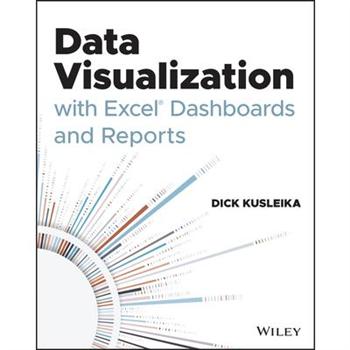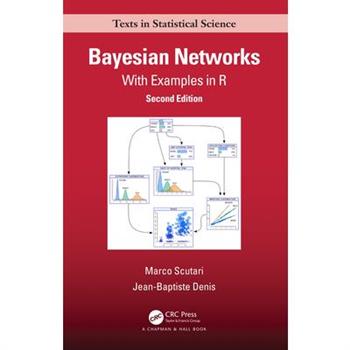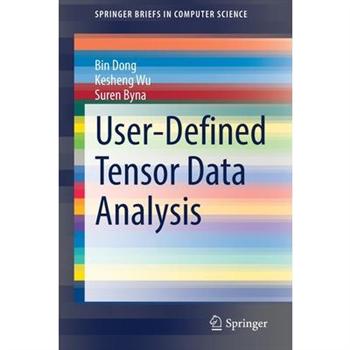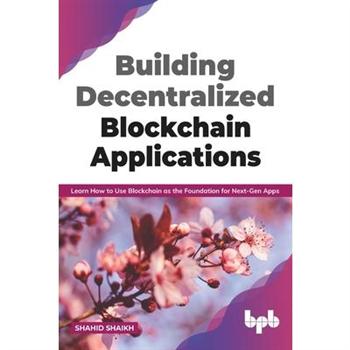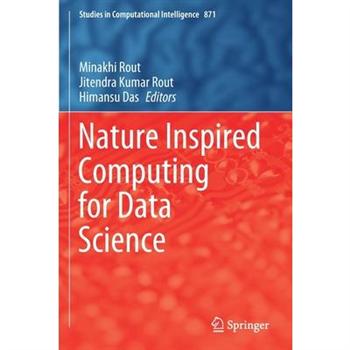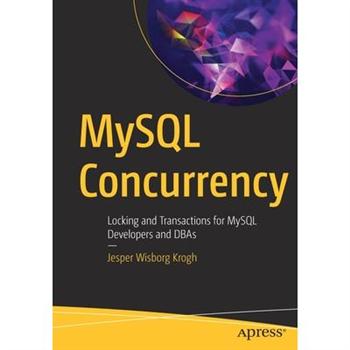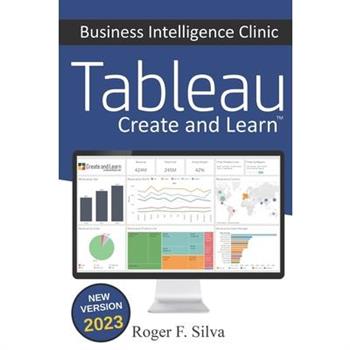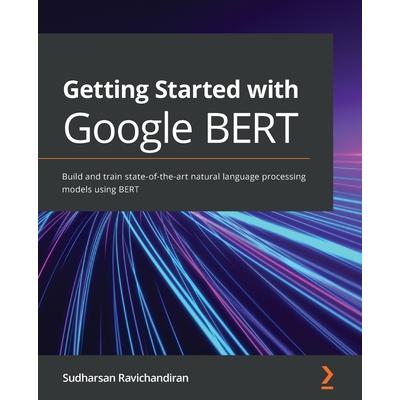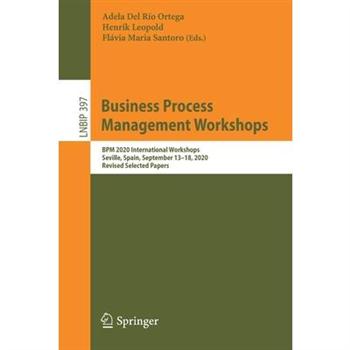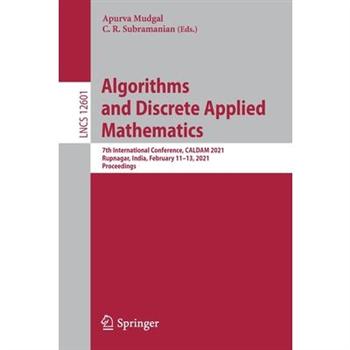iPhone Guide
Over-70 million cell phone users in the world especially in United States of America, United Kingdom, Germany, France, Italy, Canada, Australia, India, Spain, Africa and other European countries, African countries, Asian countries and lot more uses the iPhone 7, iPhone 7 Plus, iPhone 8, iPhone 8 Plus, iPhone X, iPhone XR, iPhone XS, iPhone XS Max, iPhone 11 and iPhone 11 aren't just faster and more powerful than ever-they're also better at all of the things you use an iPhone DEVICE for. Following this informative guide, you will get a gorgeously illustrated guide to the shortcuts, tips, and workarounds that will turn you into an iPhone master very fast without much ado. It helps you accomplish everything from web browsing to watching videos, shooting unique photographs, watching and streaming live TV for FREE, importing and exporting contacts, files, unlocking iPhones, fixing iPhone problems and lot more. You'll get up to speed on features now one talks about which are available on your iPhone devices. This easy-to-use book will also get you up to speed on all iOS 12 features, including new Siri shortcuts, Group FaceTime, and improved performance features and also makes the information simple enough for kids, adolescents, and adult even if they are dummies, seniors and experts in the computer and technology world...
Architecting Google Cloud Solutions
Achieve your business goals and build highly available, scalable, and secure cloud infrastructure by designing robust and cost-effective solutions as a Google Cloud Architect.Key Features: Gain hands-on experience in designing and managing high-performance cloud solutionsLeverage Google Cloud Platform to optimize technical and business processes using cutting-edge technologies and servicesUse Google Cloud Big Data, AI, and ML services to design scalable and intelligent data solutionsBook Description: Google has been one of the top players in the public cloud domain thanks to its agility and performance capabilities. This book will help you design, develop, and manage robust, secure, and dynamic solutions to successfully meet your business needs.You'll learn how to plan and design network, compute, storage, and big data systems that incorporate security and compliance from the ground up. The chapters will cover simple to complex use cases for devising solutions to business problems, before focusing on how to leverage Google Cloud's Platform-as-a-Service (PaaS) and Software-as-a-Service (SaaS) capabilities for designing modern no-operations platforms. Throughout this book, you'll discover how to design for scalability, resiliency, and high availability. Later, you'll find out how to use Google Cloud to design modern applications using microservices architecture, automation, and Infrastructure-as-Code (IaC) practices. The concluding chapters then demonstrate how to apply machine learning and artificial intelligence (AI) to derive insights from your data. Finally, you will discover best practices for operating and monitoring your cloud solutions, as well as performing troubleshooting and quality assurance.By the end of this Google Cloud book, you'll be able to design robust enterprise-grade solutions using Google Cloud Platform.What You Will Learn: Get to grips with compute, storage, networking, data analytics, and pricingDiscover delivery models such as IaaS, PaaS, and SaaSExplore the underlying technologies and economics of cloud computingDesign for scalability, business continuity, observability, and resiliencySecure Google Cloud solutions and ensure complianceUnderstand operational best practices and learn how to architect a monitoring solutionGain insights into modern application design with Google CloudLeverage big data, machine learning, and AI with Google CloudWho this book is for: This book is for cloud architects who are responsible for designing and managing cloud solutions with GCP. You'll also find the book useful if you're a system engineer or enterprise architect looking to learn how to design solutions with Google Cloud. Moreover, cloud architects who already have experience with other cloud providers and are now beginning to work with Google Cloud will benefit from the book. Although an intermediate-level understanding of cloud computing and distributed apps is required, prior experience of working in the public and hybrid cloud domain is not mandatory.
Market Engineering
Information and Market Engineering at KIT: Quo Vadis?.- Market Success: The Quest for the Objectives and Success Factors of Markets.- Decision Analytics for Initial Public Offerings: How Filing Sentiment Influences Stock Market Returns.- Taxonomy Development for Business Research: A Hands-On Guideline.- Understanding Emotions in Electronic Auctions: Insights from Neurophysiology.- Studying Conceptual Modeling Processes: A Modeling Tool, Research Observatory, and Multimodal Observation Setup.- Engineering Energy Markets: The Past, the Present, and the Future.- Can Immersive Systems Help Address Sustainability Goals? Insights from Research in Information Systems.- How at the Institute of Information Systems and Marketing One Thing Leads to Another and Eventually Results in a Low-Trade Theorem.- On the Potency of Online User Representation: Insights from the Sharing Economy.- Legal Tech and Lawtech: Towards a Framework for Technological Trends in the Legal Services Industry.- The Socialoid: A Computational Model of a City.- Data Analytics for Smart Decision-Making and Resilient Systems.- Academic Poem for Christof.
Market Engineering
Information and Market Engineering at KIT: Quo Vadis?.- Market Success: The Quest for the Objectives and Success Factors of Markets.- Decision Analytics for Initial Public Offerings: How Filing Sentiment Influences Stock Market Returns.- Taxonomy Development for Business Research: A Hands-On Guideline.- Understanding Emotions in Electronic Auctions: Insights from Neurophysiology.- Studying Conceptual Modeling Processes: A Modeling Tool, Research Observatory, and Multimodal Observation Setup.- Engineering Energy Markets: The Past, the Present, and the Future.- Can Immersive Systems Help Address Sustainability Goals? Insights from Research in Information Systems.- How at the Institute of Information Systems and Marketing One Thing Leads to Another and Eventually Results in a Low-Trade Theorem.- On the Potency of Online User Representation: Insights from the Sharing Economy.- Legal Tech and Lawtech: Towards a Framework for Technological Trends in the Legal Services Industry.- The Socialoid: A Computational Model of a City.- Data Analytics for Smart Decision-Making and Resilient Systems.- Academic Poem for Christof.
Building a Salesforce-Powered Front Office
Harness the power of Salesforce to manage and grow your business. This book shows you how to use the Salesforce CRM tool to consolidate consumer data into a single place to gain better insight into your business and more easily manage data.Data (such as email, spreadsheets, databases) is generated through the front office or face of your business, where your company interacts with customers and revenue is generated. In a hotel, for instance, the front office is the lobby where guests are greeted, their problems are handled, and room payments are made. Another example is a coffee shop, where the front office is an employee taking a customer's order or serving a drink.Salespeople connect to customers by selling your company's goods or services. Marketing team members connect with them through advertising and promotional activities. Service and support staff assist customers with problems and provide help with products.This book introduces the many ways Salesforce-based innovations are transforming the technology landscape and the strategies that may be used for designing and launching a digital front office. The book examines how organizations can launch and grow digital solutions and strategies for the governance of the platform and provides an overview of digital transformation across industries. What You Will Learn Understand basic Salesforce concepts, including the digital front office process tower, lead to cash journey, core CRM functions, best practices, and moreReview data management concepts, integrated sales, customer service, marketing operations, and proposal and business development needs in a systematic wayUse frameworks to build a business architecture and multi-year technology roadmapGet familiar with Salesforce business processes and concepts such as account, contact, lead, and opportunity management; marketing campaigns; master data management (MDM); and lead scoring, grading, and activity management across the front officeDefine and develop digital marketing challenges and strategy (people, process, brand, messaging, and ROI), measure campaign data, and create an end-to-end campaign in Salesforce Who This Book Is ForBusiness executives, C-suites, IT management, and Salesforce managers and professionals working in IT, business development, sales operations, program management, marketing operations, and proposal development
Machine Learning for Networking
This book constitutes the thoroughly refereed proceedings of the Second International Conference on Machine Learning for Networking, MLN 2019, held in Paris, France, in December 2019. The 26 revised full papers included in the volume were carefully reviewed and selected from 75 submissions. They present and discuss new trends in deep and reinforcement learning, pattern recognition and classification for networks, machine learning for network slicing optimization, 5G system, user behavior prediction, multimedia, IoT, security and protection, optimization and new innovative machine learning methods, performance analysis of machine learning algorithms, experimental evaluations of machine learning, data mining in heterogeneous networks, distributed and decentralized machine learning algorithms, intelligent cloud-support communications, ressource allocation, energy-aware communications, software de ned networks, cooperative networks, positioning and navigation systems, wireless communications, wireless sensor networks, underwater sensor networks.
Tableau Desktop Cookbook
Whether you're a beginner just learning how to create data visualizations or a Jedi who's already used Tableau for years, this cookbook has a recipe for everyone. Author Lorna Brown provides more than 100 practical recipes to enhance the way you build Tableau dashboards--and helps you understand your data through the power of Tableau Desktop's interactive data visualizations. With this cookbook, Tableau beginners will learn hands-on how this unique self-serve tool works, while experienced users will find this book to be an ideal reference guide on how to employ specific techniques. It also links you to online resources and community features, such as Tableau Tip Tuesday and Workout Wednesday. By the time you reach the end, you'll be a competent user of Tableau Desktop. You'll learn how to: Build both basic and complex data visualizations with Tableau Desktop Gain hands-on experience with Tableau's latest features, including set and parameter actions Create interactive dashboards to support business questions Improve your analytical skills to enhance the visualizations you've already created Learn data visualization skills and best practices to help you and your organization
Formalizing Natural Languages with Nooj 2020 and Its Natural Language Processing Applications
This book constitutes selected revised papers of the 14th International Conference, NooJ 2020, held Zagreb, Croatia, in June 2020. Due to the COVID-19 pandemic the conference was held online. NooJ is a linguistic development environment that allows linguists to formalize several levels of linguistic phenomena. NooJ provides linguists with tools to develop dictionaries, regular grammars, context-free grammars, context-sensitive grammars and unrestricted grammars as well as their graphical equivalent to formalize each linguistic phenomenon. The 20 full papers presented were carefully reviewed and selected from 68 submissions. The papers are organized in the following topics: ​ Linguistic Formalization; Digital Humanities and Teaching with NooJ; Natural Language Processing Applications.
Forecasting Time Series Data with Facebook Prophet
Create and improve high-quality automated forecasts for time series data that have strong seasonal effects, holidays, and additional regressors using PythonKey FeaturesLearn how to use the open-source forecasting tool Facebook Prophet to improve your forecastsBuild a forecast and run diagnostics to understand forecast qualityFine-tune models to achieve high performance, and report that performance with concrete statisticsBook DescriptionProphet enables Python and R developers to build scalable time series forecasts. This book will help you to implement Prophet's cutting-edge forecasting techniques to model future data with higher accuracy and with very few lines of code.You will begin by exploring the evolution of time series forecasting, from the basic early models to the advanced models of the present day. The book will demonstrate how to install and set up Prophet on your machine and build your fi rst model with only a few lines of code. You'll then cover advanced features such as visualizing your forecasts, adding holidays, seasonality, and trend changepoints, handling outliers, and more, along with understanding why and how to modify each of the default parameters. Later chapters will show you how to optimize more complicated models with hyperparameter tuning and by adding additional regressors to the model. Finally, you'll learn how to run diagnostics to evaluate the performance of your models and see some useful features when running Prophet in production environments.By the end of this Prophet book, you will be able to take a raw time series dataset and build advanced and accurate forecast models with concise, understandable, and repeatable code.What You Will LearnGain an understanding of time series forecasting, including its history, development, and usesUnderstand how to install Prophet and its dependenciesBuild practical forecasting models from real datasets using PythonUnderstand the Fourier series and learn how it models seasonalityDecide when to use additive and when to use multiplicative seasonalityDiscover how to identify and deal with outliers in time series dataRun diagnostics to evaluate and compare the performance of your modelsWho this Book is forThis book is for data scientists, data analysts, machine learning engineers, software engineers, project managers, and business managers who want to build time series forecasts in Python. Working knowledge of Python and a basic understanding of forecasting principles and practices will be useful to apply the concepts covered in this book more easily.
Tableau Prep Cookbook
Explore common and not-so-common data transformation scenarios and solutions to become well-versed with Tableau Prep and create efficient and powerful data pipelinesKey Features: Combine, clean, and shape data for analysis using self-service data preparation techniquesBecome proficient with Tableau Prep for building and managing data flows across your organizationLearn how to combine multiple data transformations in order to build a robust datasetBook Description: Tableau Prep is a tool in the Tableau software suite, created specifically to develop data pipelines. This book will describe, in detail, a variety of scenarios that you can apply in your environment for developing, publishing, and maintaining complex Extract, Transform and Load (ETL) data pipelines.The book starts by showing you how to set up Tableau Prep Builder. You'll learn how to obtain data from various data sources, including files, databases, and Tableau Extracts. Next, the book demonstrates how to perform data cleaning and data aggregation in Tableau Prep Builder. You'll also gain an understanding of Tableau Prep Builder and how you can leverage it to create data pipelines that prepare your data for downstream analytics processes, including reporting and dashboard creation in Tableau. As part of a Tableau Prep flow, you'll also explore how to use R and Python to implement data science components inside a data pipeline. In the final chapter, you'll apply the knowledge you've gained to build two use cases from scratch, including a data flow for a retail store to prepare a robust dataset using multiple disparate sources and a data flow for a call center to perform ad hoc data analysis.By the end of this book, you'll be able to create, run, and publish Tableau Prep flows and implement solutions to common problems in data pipelines.What You Will Learn: Perform data cleaning and preparation techniques for advanced data analysisUnderstand how to combine multiple disparate datasetsPrepare data for different Business Intelligence (BI) toolsApply Tableau Prep's calculation language to create powerful calculationsUse Tableau Prep for ad hoc data analysis and data science flowsDeploy Tableau Prep flows to Tableau Server and Tableau OnlineWho this book is for: This book is for business intelligence professionals, data analysts, and Tableau users looking to learn Tableau Prep essentials and create data pipelines or ETL processes using it. Beginner-level knowledge of data management will be beneficial to understand the concepts covered in this Tableau cookbook more effectively.
PostgreSQL 13 Cookbook
Get to grips with building reliable, scalable, and maintainable database solutions for enterprises and production databasesKey Features: Implement PostgreSQL 13 features to perform end-to-end modern database managementDesign, manage, and build enterprise database solutions using a unique recipe-based approachSolve common and not-so-common challenges faced while working to achieve optimal database performanceBook Description: PostgreSQL has become the most advanced open source database on the market. This book follows a step-by-step approach, guiding you effectively in deploying PostgreSQL in production environments.The book starts with an introduction to PostgreSQL and its architecture. You'll cover common and not-so-common challenges faced while designing and managing the database. Next, the book focuses on backup and recovery strategies to ensure your database is steady and achieves optimal performance. Throughout the book, you'll address key challenges such as maintaining reliability, data integrity, a fault-tolerant environment, a robust feature set, extensibility, consistency, and authentication. Moving ahead, you'll learn how to manage a PostgreSQL cluster and explore replication features for high availability. Later chapters will assist you in building a secure PostgreSQL server, along with covering recipes for encrypting data in motion and data at rest. Finally, you'll not only discover how to tune your database for optimal performance but also understand ways to monitor and manage maintenance activities, before learning how to perform PostgreSQL upgrades during downtime.By the end of this book, you'll be well-versed with the essential PostgreSQL 13 features to build enterprise relational databases.What You Will Learn: Understand logical and physical backups in PostgresDemonstrate the different types of replication methods possible with PostgreSQL todaySet up a high availability cluster that provides seamless automatic failover for applicationsSecure a PostgreSQL encryption through authentication, authorization, and auditingAnalyze the live and historic activity of a PostgreSQL serverUnderstand how to monitor critical services in Postgres 13Manage maintenance activities and performance tuning of a PostgreSQL clusterWho this book is for: This PostgreSQL book is for database architects, database developers and administrators, or anyone who wants to become well-versed with PostgreSQL 13 features to plan, manage, and design efficient database solutions. Prior experience with the PostgreSQL database and SQL language is expected.
Human Behavior Analysis: Sensing and Understanding
1. Introduction.- 2. Main Steps of Human Behavior Sensing and Understanding.- 3. Sensor-Based Behavior Recognition.- 4. Device-free Behavior Recognition.- 5. Individual Behavior Recognition.- 6. Group Behavior Recognition.- 7. Community Behavior Understanding.- 8. Open Issues and Emerging Trends.
Spatial Data and Intelligence
This book constitutes the proceedings of the First International Conference on Spatial Data and Intelligence, SpatialDI 2020, which was held on May 8-9, 2020. The conference was planned to take place in Shenzhen, China, and changed to an online format due to the COVID-19 pandemic. The 21 full papers presented in this volume were carefully reviewed and selected from 50 submissions. They were organized in topical sections named: traffic management; data science; and visualization science.
Practical AI for Cybersecurity
The world of cybersecurity and the landscape that it possesses is changing on a dynamic basis. It seems like that hardly one threat vector is launched, new variants of it are already on the way. IT Security teams in businesses and corporations are struggling daily to fight off any cyberthreats that they are experiencing. On top of this, they are also asked by their CIO or CISO to model what future Cyberattacks could potentially look like, and ways as to how the lines of defenses can be further enhanced. IT Security teams are overburdened and are struggling to find ways in order to keep up with what they are being asked to do. Trying to model the cyberthreat landscape is a very laborious process, because it takes a lot of time to analyze datasets from many intelligence feeds. What can be done to accomplish this Herculean task? The answer lies in Artificial Intelligence (AI). With AI, an IT Security team can model what the future Cyberthreat landscape could potentially look like in just a matter of minutes. As a result, this gives valuable time for them not only to fight off the threats that they are facing, but to also come up with solutions for the variants that will come out later. Practical AI for Cybersecurity explores the ways and methods as to how AI can be used in cybersecurity, with an emphasis upon its subcomponents of machine learning, computer vision, and neural networks. The book shows how AI can be used to help automate the routine and ordinary tasks that are encountered by both penetration testing and threat hunting teams. The result is that security professionals can spend more time finding and discovering unknown vulnerabilities and weaknesses that their systems are facing, as well as be able to come up with solid recommendations as to how the systems can be patched up quickly.
Snowflake Cookbook
Develop modern solutions with Snowflake's unique architecture and integration capabilities; process bulk and real-time data into a data lake; and leverage time travel, cloning, and data-sharing features to optimize data operationsKey FeaturesBuild and scale modern data solutions using the all-in-one Snowflake platformPerform advanced cloud analytics for implementing big data and data science solutionsMake quicker and better-informed business decisions by uncovering key insights from your dataBook DescriptionSnowflake is a unique cloud-based data warehousing platform built from scratch to perform data management on the cloud. This book introduces you to Snowflake's unique architecture, which places it at the forefront of cloud data warehouses.You'll explore the compute model available with Snowflake, and find out how Snowflake allows extensive scaling through the virtual warehouses. You will then learn how to configure a virtual warehouse for optimizing cost and performance. Moving on, you'll get to grips with the data ecosystem and discover how Snowflake integrates with other technologies for staging and loading data.As you progress through the chapters, you will leverage Snowflake's capabilities to process a series of SQL statements using tasks to build data pipelines and find out how you can create modern data solutions and pipelines designed to provide high performance and scalability. You will also get to grips with creating role hierarchies, adding custom roles, and setting default roles for users before covering advanced topics such as data sharing, cloning, and performance optimization.By the end of this Snowflake book, you will be well-versed in Snowflake's architecture for building modern analytical solutions and understand best practices for solving commonly faced problems using practical recipes.What You Will LearnGet to grips with data warehousing techniques aligned with Snowflake's cloud architectureBroaden your skills as a data warehouse designer to cover the Snowflake ecosystemTransfer skills from on-premise data warehousing to the Snowflake cloud analytics platformOptimize performance and costs associated with a Snowflake solutionStage data on object stores and load it into SnowflakeSecure data and share it efficiently for accessManage transactions and extend Snowflake using stored proceduresExtend cloud data applications using Spark ConnectorWho this book is forThis book is for data warehouse developers, data analysts, database administrators, and anyone involved in designing, implementing, and optimizing a Snowflake data warehouse. Knowledge of data warehousing and database and cloud concepts will be useful. Basic familiarity with Snowflake is beneficial, but not necessary.
Designing and Building Solid Microservice Ecosystems
It's not new to us that microservices are changing the way we conceive the digital transformation, as organizations embrace the digital transformation. Every day, more and more companies are betting on microservice adoption, and there is a strong reason for this: business needs to evolve and change in a fast pace, in order to adapt itself to satisfy a demanding 2.0 digital customer's experience in terms of overall service quality.Ensuring that such a change occurs seamlessly and progressively is one of the goals for microservices, and designing and building a solid microservice architecture is the way to guarantee that this happens from inception, by observing principles, best practices, design patterns and reference models. This book provides a comprehensive walkthrough across the different concepts, frameworks, methodologies, and architecture building blocks that make up a microservice ecosystem and constitute a reference architecture from which you can get to multiple sub-architectures and implementations. Being an architect, you'll learn how to better design microservice-led and event-centric architectures in the right way from the early beginning, by showcasing learned lessons, best-practices do's and don'ts. If you are starting your architecture career, it's the right place to getting introduced in concepts and methodologies that you will then grow over time, as you acquire more experience. If you are a developer, but willing to jump into the exciting architecture world, this can also be good reading, however, be warned that some basic architectural understandings and concepts need to be first incorporated before walking through the advanced concepts presented throughout this book.This book requires you to have some minimal background around Docker and Microservices to better understand the more advanced concepts that are being explained.
Machine Learning for Oracle Database Professionals
Database developers and administrators will use this book to learn how to deploy machine learning models in Oracle Database and in Oracle's Autonomous Database cloud offering. The book covers the technologies that make up the Oracle Machine Learning (OML) platform, including OML4SQL, OML Notebooks, OML4R, and OML4Py. The book focuses on Oracle Machine Learning as part of the Oracle Autonomous Database collaborative environment. Also covered are advanced topics such as delivery and automation pipelines.Throughout the book you will find practical details and hand-on examples showing you how to implement machine learning and automate deployment of machine learning. Discussion around the examples helps you gain a conceptual understanding of machine learning. Important concepts discussed include the methods involved, the algorithms to choose from, and mechanisms for process and deployment. Seasoned database professionals looking to make the leap into machine learning as a growth path will find much to like in this book as it helps you step up and use your current knowledge of Oracle Database to transition into providing machine learning solutions. What You Will LearnUse the Oracle Machine Learning (OML) Notebooks for data visualization and machine learning model building and evaluationUnderstand Oracle offerings for machine learningDevelop machine learning with Oracle database using the built-in machine learning packagesDevelop and deploy machine learning models using OML4SQL and OML4RLeverage the Oracle Autonomous Database and its collaborative environment for Oracle Machine LearningDevelop and deploy machine learning projects in Oracle Autonomous DatabaseBuild an automated pipeline that can detect and handle changes in data/model performance Who This Book Is ForDatabase developers and administrators who want to learn about machine learning, developers who want to build models and applications using Oracle Database's built-in machine learning feature set, and administrators tasked with supporting applications on Oracle Database that make use of the Oracle Machine Learning feature set
Introduction to Discrete Event Systems
This unique textbook comprehensively introduces the field of discrete event systems, offering a breadth of coverage that makes the material accessible to readers of varied backgrounds. The book emphasizes a unified modeling framework that transcends specific application areas, linking the following topics in a coherent manner: language and automata theory, supervisory control, Petri net theory, Markov chains and queueing theory, discrete-event simulation, and concurrent estimation techniques. Topics and features: detailed treatment of automata and language theory in the context of discrete event systems, including application to state estimation and diagnosiscomprehensive coverage of centralized and decentralized supervisory control of partially-observed systemstimed models, including timed automata and hybrid automatastochastic models for discrete event systems and controlled Markov chainsdiscrete event simulationan introduction to stochastic hybrid systemssensitivity analysis and optimization of discrete event and hybrid systemsnew in the third edition: opacity properties, enhanced coverage of supervisory control, overview of latest software toolsThis proven textbook is essential to advanced-level students and researchers in a variety of disciplines where the study of discrete event systems is relevant: control, communications, computer engineering, computer science, manufacturing engineering, transportation networks, operations research, and industrial engineering. ​Christos G. Cassandras is Distinguished Professor of Engineering, Professor of Systems Engineering, and Professor of Electrical and Computer Engineering at Boston University. St矇phane Lafortune is Professor of Electrical Engineering and Computer Science at the University of Michigan, Ann Arbor.
Automated Machine Learning
Get to grips with automated machine learning and adopt a hands-on approach to AutoML implementation and associated methodologiesKey Features: Get up to speed with AutoML using OSS, Azure, AWS, GCP, or any platform of your choiceEliminate mundane tasks in data engineering and reduce human errors in machine learning modelsFind out how you can make machine learning accessible for all users to promote decentralized processesBook Description: Every machine learning engineer deals with systems that have hyperparameters, and the most basic task in automated machine learning (AutoML) is to automatically set these hyperparameters to optimize performance. The latest deep neural networks have a wide range of hyperparameters for their architecture, regularization, and optimization, which can be customized effectively to save time and effort.This book reviews the underlying techniques of automated feature engineering, model and hyperparameter tuning, gradient-based approaches, and much more. You'll discover different ways of implementing these techniques in open source tools and then learn to use enterprise tools for implementing AutoML in three major cloud service providers: Microsoft Azure, Amazon Web Services (AWS), and Google Cloud Platform. As you progress, you'll explore the features of cloud AutoML platforms by building machine learning models using AutoML. The book will also show you how to develop accurate models by automating time-consuming and repetitive tasks in the machine learning development lifecycle.By the end of this machine learning book, you'll be able to build and deploy AutoML models that are not only accurate, but also increase productivity, allow interoperability, and minimize feature engineering tasks.What You Will Learn: Explore AutoML fundamentals, underlying methods, and techniquesAssess AutoML aspects such as algorithm selection, auto featurization, and hyperparameter tuning in an applied scenarioFind out the difference between cloud and operations support systems (OSS)Implement AutoML in enterprise cloud to deploy ML models and pipelinesBuild explainable AutoML pipelines with transparencyUnderstand automated feature engineering and time series forecastingAutomate data science modeling tasks to implement ML solutions easily and focus on more complex problemsWho this book is for: Citizen data scientists, machine learning developers, artificial intelligence enthusiasts, or anyone looking to automatically build machine learning models using the features offered by open source tools, Microsoft Azure Machine Learning, AWS, and Google Cloud Platform will find this book useful. Beginner-level knowledge of building ML models is required to get the best out of this book. Prior experience in using Enterprise cloud is beneficial.
Arithmetic of Finite Fields
This book constitutes the thoroughly refereed post-workshop proceedings of the 8th International Workshop on the Arithmetic of Finite Field, WAIFI 2020, held in Rennes, France in July 2020. Due to the COVID-19, the workshop was held online. The 12 revised full papers and 3 invited talks presented were carefully reviewed and selected from 22 submissions. The papers are organized in topical sections on invited talks, Finite Field Arithmetic, Coding Theory, Network Security and much more.
Resilience in the Digital Age
The growth of a global digital economy has enabled rapid communication, instantaneous movement of funds, and availability of vast amounts of information. With this come challenges such as the vulnerability of digitalized sociotechnological systems (STSs) to destructive events (earthquakes, disease events, terrorist attacks). Similar issues arise for disruptions to complex linked natural and social systems (from changing climates, evolving urban environments, etc.). This book explores new approaches to the resilience of sociotechnological and natural-social systems in a digital world of big data, extraordinary computing capacity, and rapidly developing methods of Artificial Intelligence. Most of the book's papers were presented at the Workshop on Big Data and Systems Analysis held at the International Institute for Applied Systems Analysis in Laxenburg, Austria in February, 2020. Their authors are associated with the Task Group "Advanced mathematical tools for data-driven applied systems analysis" created and sponsored by CODATA in November, 2018. The world-wide COVID-19 pandemic illustrates the vulnerability of our healthcare systems, supply chains, and social infrastructure, and confronts our notions of what makes a system resilient. We have found that use of AI tools can lead to problems when unexpected events occur. On the other hand, the vast amounts of data available from sensors, satellite images, social media, etc. can also be used to make modern systems more resilient. Papers in the book explore disruptions of complex networks and algorithms that minimize departure from a previous state after a disruption; introduce a multigrammatical framework for the technological and resource bases of today's large-scale industrial systems and the transformations resulting from disruptive events; and explain how robotics can enhance pre-emptive measures or post-disaster responses to increase resiliency. Other papers explore current directions in data processing and handling and principles of FAIRness in data; how the availability of large amounts of data can aid in the development of resilient STSs and challenges to overcome in doing so. The book also addresses interactions between humans and built environments, focusing on how AI can inform today's smart and connected buildings and make them resilient, and how AI tools can increase resilience to misinformation and its dissemination.
Data Analytics
Data analytics is creeping into the lexicon of our daily language. This book gives the reader a perspective as to the overall data analytics skill set, starting with a primer on statistics, and works toward the application of those methods. There are a variety of formulas and algorithms used in the data analytics process. These formulas can be plugged into whatever software application the reader uses to obtain the answer they need. There are several demonstrations of this process to provide straightforward instruction as to how to bring data analytics skills to your critical thinking. This book presents a variety of methods and techniques, as well as case studies, to enrich the knowledge of data analytics for project managers, systems engineers, and cybersecurity professionals. It separates the case studies so that each profession can practice some straightforward data analytics specific to their fields. The main purpose of this text is to refresh the statistical knowledgenecessary to build models for data analytics. Along with that, this book encompasses the analytics thinking that is essential to all three professions. FEATURES: Provides straightforward instruction on data analytics methodsIncludes methods, techniques, and case studies for project managers, systems engineers, and cybersecurity professionalsRefreshes the statistical knowledgeneeded to bring data analytics into your skillset and decision-makingFocuses on getting readers up to speed quickly and efficiently to be able to see the impact of data analytics and analytical thinking
Variable Neighborhood Search
This volume constitutes the proceedings of the 8th International Conference on Variable Neighborhood Search, ICVNS 2021, held in Abu Dhabi, United Arab Emirates, in March 2021.The 14 full papers presented in this volume were carefully reviewed and selected from 27 submissions. The papers describe recent advances in methods and applications of variable neighborhood search.Chapter "Reduced Variable Neighbourhood Search for the Generation of Controlled Circular Data" is available open access under a Creative Commons Attribution 4.0 International License via link.springer.com.
Big Data Preprocessing
1. Introduction.- 2. Big Data: Technologies and Tools.- 3. Smart Data.- 4. Dimensionality Reduction for Big Data.- 5. Data Reduction for Big Data.- 6. Imperfect Big Data.- 7. Big Data Discretization.- 8. Imbalanced Data Preprocessing for Big Data.- 9. Big Data Software.- 10. Final Thoughts: From Big Data to Smart Data.-
Process Mining in Action
This book describes process mining use cases and business impact along the value chain, from corporate to local applications, representing the state of the art in domain know-how. Providing a set of industrial case studies and best practices, it complements academic publications on the topic. Further the book reveals the challenges and failures in order to offer readers practical insights and guidance on how to avoid the pitfalls and ensure successful operational deployment.The book is divided into three parts: Part I provides an introduction to the topic from fundamental principles to key success factors, and an overview of operational use cases. As a holistic description of process mining in a business environment, this part is particularly useful for readers not yet familiar with the topic. Part II presents detailed use cases written by contributors from a variety of functions and industries. Lastly, Part III provides a brief overview of the future ofprocess mining, both from academic and operational perspectives.Based on a solid academic foundation, process mining has received increasing interest from operational businesses, with many companies already reaping the benefits. As the first book to present an overview of successful industrial applications, it is of particular interest to professionals who want to learn more about the possibilities and opportunities this new technology offers. It is also a valuable resource for researchers looking for empirical results when considering requirements for enhancements and further developments.
Databases Theory and Applications
This book constitutes the refereed proceedings of the 32nd Australasian Database Conference, ADC 2021, held in Dunedin, New Zealand, in January/February 2021. The 17 full papers presented were carefully reviewed and selected from 21 submissions. The Australasian Database Conference is an annual international forum for sharing the latest research advancements and novel applications of database systems, data-driven applications, and data analytics between researchers and practitioners from around the globe, particularly Australia and New Zealand. ADC shares novel research solutions to problems of todays information society that fullfil the needs of heterogeneous applications and environments and to identify new issues and directions for future research and development work.
Kubernetes in Production Best Practices
Design, build, and operate scalable and reliable Kubernetes infrastructure for productionKey Features: Implement industry best practices to build and manage production-grade Kubernetes infrastructureLearn how to architect scalable Kubernetes clusters, harden container security, and fine-tune resource managementUnderstand, manage, and operate complex business workloads confidentlyBook Description: Although out-of-the-box solutions can help you to get a cluster up and running quickly, running a Kubernetes cluster that is optimized for production workloads is a challenge, especially for users with basic or intermediate knowledge. With detailed coverage of cloud industry standards and best practices for achieving scalability, availability, operational excellence, and cost optimization, this Kubernetes book is a blueprint for managing applications and services in production.You'll discover the most common way to deploy and operate Kubernetes clusters, which is to use a public cloud-managed service from AWS, Azure, or Google Cloud Platform (GCP). This book explores Amazon Elastic Kubernetes Service (Amazon EKS), the AWS-managed version of Kubernetes, for working through practical exercises. As you get to grips with implementation details specific to AWS and EKS, you'll understand the design concepts, implementation best practices, and configuration applicable to other cloud-managed services. Throughout the book, you'll also discover standard and cloud-agnostic tools, such as Terraform and Ansible, for provisioning and configuring infrastructure.By the end of this book, you'll be able to leverage Kubernetes to operate and manage your production environments confidently.What You Will Learn: Explore different infrastructure architectures for Kubernetes deploymentImplement optimal open source and commercial storage management solutionsApply best practices for provisioning and configuring Kubernetes clusters, including infrastructure as code (IaC) and configuration as code (CAC)Configure the cluster networking plugin and core networking components to get the best out of themSecure your Kubernetes environment using the latest tools and best practicesDeploy core observability stacks, such as monitoring and logging, to fine-tune your infrastructureWho this book is for: This book is for cloud infrastructure experts, DevOps engineers, site reliability engineers, and engineering managers looking to design and operate Kubernetes infrastructure for production. Basic knowledge of Kubernetes, Terraform, Ansible, Linux, and AWS is needed to get the most out of this book.
Mathematical Foundations of Big Data Analytics
In this textbook, basic mathematical models used in Big Data Analytics are presented and application-oriented references to relevant practical issues are made. Necessary mathematical tools are examined and applied to current problems of data analysis, such as brand loyalty, portfolio selection, credit investigation, quality control, product clustering, asset pricing etc. - mainly in an economic context. In addition, we discuss interdisciplinary applications to biology, linguistics, sociology, electrical engineering, computer science and artificial intelligence. For the models, we make use of a wide range of mathematics - from basic disciplines of numerical linear algebra, statistics and optimization to more specialized game, graph and even complexity theories. By doing so, we cover all relevant techniques commonly used in Big Data Analytics.Each chapter starts with a concrete practical problem whose primary aim is to motivate the study of a particular Big Data Analytics technique. Next, mathematical results follow - including important definitions, auxiliary statements and conclusions arising. Case-studies help to deepen the acquired knowledge by applying it in an interdisciplinary context. Exercises serve to improve understanding of the underlying theory. Complete solutions for exercises can be consulted by the interested reader at the end of the textbook; for some which have to be solved numerically, we provide descriptions of algorithms in Python code as supplementary material.This textbook has been recommended and developed for university courses in Germany, Austria and Switzerland.
Data Pipelines Pocket Reference
Data pipelines are the foundation for success in data analytics. Moving data from numerous diverse sources and transforming it to provide context is the difference between having data and actually gaining value from it. This pocket reference defines data pipelines and explains how they work in today's modern data stack. You'll learn common considerations and key decision points when implementing pipelines, such as batch versus streaming data ingestion and build versus buy. This book addresses the most common decisions made by data professionals and discusses foundational concepts that apply to open source frameworks, commercial products, and homegrown solutions. You'll learn: What a data pipeline is and how it works How data is moved and processed on modern data infrastructure, including cloud platforms Common tools and products used by data engineers to build pipelines How pipelines support analytics and reporting needs Considerations for pipeline maintenance, testing, and alerting
Information Technology for Management: Towards Business Excellence
This book constitutes revised selected and extended papers presented at track 4 of the Conference on Computer Science and Intelligence Systems, FedCSIS 2020, which took place in Sofia, Bulgaria, during September 6-9, 2020. The FedCSIS Information Systems and Technologies Track included AIST 2020, DSH 2020, ISM 2020, and KAM 2020. For this track, a total of 29 submissions was received from which a total of 5 full and 3 short papers was accepted for publication in this volume. The papers were organized in topical sections named: improving project management methods; numerical methods of solving management problems; and technological infrastructure for business excellence.
MongoDB Fundamentals
Learn how to deploy and monitor databases in the cloud, manipulate documents, visualize data, and build applications running on MongoDB using Node.jsKey FeaturesLearn the fundamentals of NoSQL databases with MongoDBCreate, manage, and optimize a MongoDB database in the cloud using AtlasUse a real-world dataset to gain practical experience of handling big dataBook DescriptionMongoDB is one of the most popular database technologies for handling large collections of data. This book will help MongoDB beginners develop the knowledge and skills to create databases and process data efficiently.Unlike other MongoDB books, MongoDB Fundamentals dives into cloud computing from the very start - showing you how to get started with Atlas in the first chapter. You will discover how to modify existing data, add new data into a database, and handle complex queries by creating aggregation pipelines. As you progress, you'll learn about the MongoDB replication architecture and configure a simple cluster. You will also get to grips with user authentication, as well as techniques for backing up and restoring data. Finally, you'll perform data visualization using MongoDB Charts.You will work on realistic projects that are presented as bitesize exercises and activities, allowing you to challenge yourself in an enjoyable and attainable way. Many of these mini-projects are based around a movie database case study, while the last chapter acts as a final project where you will use MongoDB to solve a real-world problem based on a bike-sharing app.By the end of this book, you'll have the skills and confidence to process large volumes of data and tackle your own projects using MongoDB.What You Will LearnSet up and use MongoDB Atlas on the cloudInsert, update, delete, and retrieve data from MongoDBBuild aggregation pipelines to perform complex queriesOptimize queries using indexesMonitor databases and manage user authorizationImprove scalability and performance with sharding clustersReplicate clusters, back up your database, and restore dataCreate data-driven charts and reports from real-time dataWho this book is forThis book is designed for people who are new to MongoDB. It is suitable for developers, database administrators, system administrators, and cloud architects who are looking to use MongoDB for smooth data processing in the cloud. Although not necessary, basic knowledge of a general programming language and experience with other databases will help you grasp the topics covered more easily.
Intelligent Transport Systems, from Research and Development to the Market Uptake
This book constitutes the proceedings of the 4th International Conference on Intelligent Transport Systems, INTSYS 2020, which was held in December 2020. Due to COVID-19 pandemic the conference was held virtually. With the globalization of trade and transportation and the consequent multi-modal solutions used, additional challenges are faced by organizations and countries. Intelligent Transport Systems make transport safer, more efficient, and more sustainable by applying information and communication technologies to all transportation modes. The 16 revised full papers in this book were selected from 38 submissions and are organized in three thematic sessions on mobility; applications; simulation and prediction.
Data Mining
This textbook explores the different aspects of data mining from the fundamentals to the complex data types and their applications, capturing the wide diversity of problem domains for data mining issues. It goes beyond the traditional focus on data mining problems to introduce advanced data types such as text, time series, discrete sequences, spatial data, graph data, and social networks. Until now, no single book has addressed all these topics in a comprehensive and integrated way. The chapters of this book fall into one of three categories: Fundamental chapters: Data mining has four main problems, which correspond to clustering, classification, association pattern mining, and outlier analysis. These chapters comprehensively discuss a wide variety of methods for these problems. Domain chapters: These chapters discuss the specific methods used for different domains of data such as text data, time-series data, sequence data, graph data, and spatial data. Application chapters: These chapters study important applications such as stream mining, Web mining, ranking, recommendations, social networks, and privacy preservation. The domain chapters also have an applied flavor. Appropriate for both introductory and advanced data mining courses, Data Mining: The Textbook balances mathematical details and intuition. It contains the necessary mathematical details for professors and researchers, but it is presented in a simple and intuitive style to improve accessibility for students and industrial practitioners (including those with a limited mathematical background). Numerous illustrations, examples, and exercises are included, with an emphasis on semantically interpretable examples.Praise for Data Mining: The Textbook - "As I read through this book, I have already decided to use it in my classes. This is a book written by an outstanding researcher who has made fundamental contributions to data mining, in a way that is both accessible and up to date. The book is complete with theory and practical use cases. It's a must-have for students and professors alike!" -- Qiang Yang, Chair of Computer Science and Engineering at Hong Kong University of Science and Technology"This is the most amazing and comprehensive text book on data mining. It covers not only the fundamental problems, such as clustering, classification, outliers and frequent patterns, and different data types, including text, time series, sequences, spatial data and graphs, but also various applications, such as recommenders, Web, social network and privacy. It is a great book for graduate students and researchers as well as practitioners." -- Philip S. Yu, UIC Distinguished Professor and Wexler Chair in Information Technology at University of Illinois at Chicago
Advances in Analysis of Images, Social Networks and Texts
This book constitutes revised selected papers of the 9th International Conference on Analysis of Images, Social Networks and Texts, AIST 2020, held in Moscow, Russia, in october 2020. Due to the COVID-19 pandemic the conference was held online. The 14 full papers, 9 short papers and 4 poster papers were carefully reviewed and selected from 108 qualified submissions. The papers are organized in topical sections on ​natural language processing; computer vision; social network analysis; data analysis and machine learning; theoretical machine learning and optimization; process mining; posters.
Mathematik F羹r Die Informatik
Mathematik f羹r die Informatik: Dieses Buch bringt Ihnen die Grundlagen beiDas Buch bietet eine Einf羹hrung in die grundlegenden Begriffe und Strukturen der Mathematik, welche am Anfang eines Informatikstudiums relevant sind. Weiterhin demonstriert es Anwendungen von mathematischen Konzepten und Methoden in der Informatik. Diese betreffen insbesondere formale Methoden der Programmverifikation und -entwicklung und den Entwurf von generischen Programmen. Ein spezielles Konzept mit einer leicht verst瓣ndlichen Vermittlung des Stoffs, vielen Beispielen mit R羹ckgriffen auf die Schul-Mathematik und detaillierten Beweisen (verbunden mit der Erkl瓣rung des logischen Hintergrunds) erleichtert den Einstieg in die Mathematik an einer wissenschaftlichen Hochschule. Dadurch werden die Studierenden auch auf sp瓣tere Begriffe und tiefergehende Anwendungen der Mathematik in der Informatik gut vorbereitet. Die 157 ?bungsaufgaben, aufgeteilt in die 12 einzelnen Kapitel, sollen helfen, das Erlernte zu festigen und zu kontrollieren. Zahlreiche L繹sungsvorschl瓣ge am Ende des Buchs erm繹glichen die ?berpr羹fung der eigenen L繹sungen.Mit diesem Buch gelingt der Einstieg ins Informatik-StudiumMit diesem Buch schaffen Sie eine solide Basis f羹r die Mathematikausbildung im Rahmen des Informatikstudiums. Zudem sind Sie durch die vorgestellten Problemstellungen in der Lage, selbstst瓣ndig mathematische Konzepte und Methoden anzuwenden. Zielgruppen dieses Buchs 羹ber Mathematik in der Informatik sind Bachelor-Studierende in den ersten Studiensemestern folgender Fachbereiche: InformatikMathematikIngenieurwissenschaften
Heterogeneous Data Management, Polystores, and Analytics for Healthcare
This book constitutes revised selected papers from two VLDB workshops: The International Workshop on Polystore Systems for Heterogeneous Data in Multiple Databases with Privacy and Security Assurances, Poly 2020, and the 6th International Workshop on Data Management and Analytics for Medicine and Healthcare, DMAH 2020, which were held virtually on August 31 and September 4, 2020.For Poly 2020, 4 full and 3 short papers were accepted from 10 submissions; and for DMAH 2020, 7 full and 2 short papers were accepted from a total of 15 submissions. The papers were organized in topical sections as follows: Privacy, Security and/or Policy Issues for Heterogenous Data; COVID-19 Data Analytics and Visualization; Deep Learning based Biomedical Data Analytics; NLP based Learning from Unstructured Data; Biomedical Data Modelling and Prediction.
Benchmarking, Measuring, and Optimizing
This book constitutes the refereed post-conference proceedings of the Third International Symposium on Benchmarking, Measuring, and Optimization, Bench 2020, held virtually in November 2020.The 12 revised full papers and 1 revised short paper presented were carefully reviewed and selected from 28 submissions. The papers are organized in topical sections named: best paper session; data management and storage; supercomputing; benchmarking on GPU; and application and dataset.
Iot-Based Intelligent Modelling for Environmental and Ecological Engineering
This book brings to readers thirteen chapters with contributions to the benefits of using IoT and Cloud Computing to agro-ecosystems from a multi-disciplinary perspective. IoT and Cloud systems have prompted the development of a Cloud digital ecosystem referred to as Cloud-to-thing continuum computing. The key success of IoT computing and the Cloud digital ecosystem is that IoT can be integrated seamlessly with the physical environment and therefore has the potential to leverage innovative services in agro-ecosystems. Areas such as ecological monitoring, agriculture, and biodiversity constitute a large area of potential application of IoT and Cloud technologies. In contrast to traditional agriculture systems that have employed aggressive policies to increase productivity, new agro-ecosystems aim to increase productivity but also achieve efficiency and competitiveness in modern sustainable agriculture and contribute, more broadly, to the green economy and sustainable food-chain industry. Fundamental research as well as concrete applications from various real-life scenarios, such as smart farming, precision agriculture, green agriculture, sustainable livestock and sow farming, climate threat, and societal and environmental impacts, is presented. Research issues and challenges are also discussed towards envisioning efficient and scalable solutions to agro-ecosystems based on IoT and Cloud technologies. Our fundamental belief is that we can collectively trigger a new revolution that will transition agriculture into an equable system that not only feeds the world, but also contributes to mitigating the climate change and biodiversity crises that our historical actions have triggered.
Data Visualization with Excel Dashboards and Reports
Large corporations like IBM and Oracle are using Excel dashboards and reports as a Business Intelligence tool, and many other smaller businesses are looking to these tools in order to cut costs for budgetary reasons. An effective analyst not only has to have the technical skills to use Excel in a productive manner but must be able to synthesize data into a story, and then present that story in the most impactful way. Microsoft shows its recognition of this with Excel. In Excel, there is a major focus on business intelligence and visualization. Data Visualization with Excel Dashboards and Reports fills the gap between handling data and synthesizing data into meaningful reports. This title will show readers how to think about their data in ways other than columns and rows. Most Excel books do a nice job discussing the individual functions and tools that can be used to create an "Excel Report". Titles on Excel charts, Excel pivot tables, and other books that focus on "Tips and Tricks" are useful in their own right; however they don't hit the mark for most data analysts. The primary reason these titles miss the mark is they are too focused on the mechanical aspects of building a chart, creating a pivot table, or other functionality. They don't offer these topics in the broader picture by showing how to present and report data in the most effective way. What are the most meaningful ways to show trending? How do you show relationships in data? When is showing variances more valuable than showing actual data values? How do you deal with outliers? How do you bucket data in the most meaningful way? How do you show impossible amounts of data without inundating your audience? In Data Visualization with Excel Reports and Dashboards, readers will get answers to all of these questions. Part technical manual, part analytical guidebook; this title will help Excel users go from reporting data with simple tables full of dull numbers, to creating hi-impact reports and dashboards that will wow management both visually and substantively. This book offers a comprehensive review of a wide array of technical and analytical concepts that will help users create meaningful reports and dashboards. After reading this book, the reader will be able to: Analyze large amounts of data and report their data in a meaningful way Get better visibility into data from different perspectives Quickly slice data into various views on the fly Automate redundant reporting and analyses Create impressive dashboards and What-If analyses Understand the fundamentals of effective visualization Visualize performance comparisons Visualize changes and trends over time
Bayesian Networks
Bayesian Networks: With Examples in R, Second Edition introduces Bayesian networks using a hands-on approach. Simple yet meaningful examples illustrate each step of the modelling process and discuss side by side the underlying theory and its application using R code. The examples start from the simplest notions and gradually increase in complexity. In particular, this new edition contains significant new material on topics from modern machine-learning practice: dynamic networks, networks with heterogeneous variables, and model validation.The first three chapters explain the whole process of Bayesian network modelling, from structure learning to parameter learning to inference. These chapters cover discrete, Gaussian, and conditional Gaussian Bayesian networks. The following two chapters delve into dynamic networks (to model temporal data) and into networks including arbitrary random variables (using Stan). The book then gives a concise but rigorous treatment of the fundamentals of Bayesian networks and offers an introduction to causal Bayesian networks. It also presents an overview of R packages and other software implementing Bayesian networks. The final chapter evaluates two real-world examples: a landmark causal protein-signalling network published in Science and a probabilistic graphical model for predicting the composition of different body parts.Covering theoretical and practical aspects of Bayesian networks, this book provides you with an introductory overview of the field. It gives you a clear, practical understanding of the key points behind this modelling approach and, at the same time, it makes you familiar with the most relevant packages used to implement real-world analyses in R. The examples covered in the book span several application fields, data-driven models and expert systems, probabilistic and causal perspectives, thus giving you a starting point to work in a variety of scenarios.Online supplementary materials include the data sets and the code used in the book, which will all be made available from https: //www.bnlearn.com/book-crc-2ed/
User-Defined Tensor Data Analysis
The SpringerBrief introduces FasTensor, a powerful parallel data programming model developed for big data applications. This book also provides a user's guide for installing and using FasTensor. FasTensor enables users to easily express many data analysis operations, which may come from neural networks, scientific computing, or queries from traditional database management systems (DBMS). FasTensor frees users from all underlying and tedious data management tasks, such as data partitioning, communication, and parallel execution.This SpringerBrief gives a high-level overview of the state-of-the-art in parallel data programming model and a motivation for the design of FasTensor. It illustrates the FasTensor application programming interface (API) with an abundance of examples and two real use cases from cutting edge scientific applications. FasTensor can achieve multiple orders of magnitude speedup over Spark and other peer systems in executing big data analysis operations. FasTensor makes programming for data analysis operations at large scale on supercomputers as productively and efficiently as possible. A complete reference of FasTensor includes its theoretical foundations, C++ implementation, and usage in applications.Scientists in domains such as physical and geosciences, who analyze large amounts of data will want to purchase this SpringerBrief. Data engineers who design and develop data analysis software and data scientists, and who use Spark or TensorFlow to perform data analyses, such as training a deep neural network will also find this SpringerBrief useful as a reference tool.
Building Decentralized Blockchain Applications
Build decentralized applications using Blockchain's core technology Key FeaturesExplore the engineering mechanism of Blockchain, Cryptocurrency, and Ethereum. Know-how of peer-to-peer networks, IPFS, and decentralised databases. Explore the working of DApps and build your own blockchain app.DescriptionBlockchain is a revolutionary technology that shook the core of the finance world. However, Blockchain is not just about Cryptocurrency.This book focuses on Blockchain, its features, and the core technologies that are used to build the Blockchain network. In the first section, you will learn about Blockchain in-depth. Then, the book covers the two most popular Cryptocurrencies - Bitcoin and Ethereum. You will learn how these currencies work and how you can build your applications using these currencies. Moving on, you will learn about the decentralized databases. Decentralized databases can be used to build next-generation software applications. You will learn about various databases and how to use them in detail. Lastly, you will learn how the existing decentralized applications work, their architecture, and how they are incorporated into the application for the end-user. What will you learn Learn to build your own P2P network.Cutting-edge coverage on how cryptocurrency works.Learn smart techniques to develop your own DApps on Ethereum platform.Learn to use decentralized databases including OrbitDB.Who this book is forThis book is for anyone who wants to become a Blockchain developer or wants to build an application using Blockchain. Full stack developers, software engineers, web programmers, and beginners who are interested in Blockchain can find this book a true handy guide to begin their career in Blockchain. Table of Contents 1. Introduction to Blockchain and decentralized network2. Ethereum, Smart Contracts and DApps3. Interplanetary file system4. OrbitDB - Peer to peer distributed database5. BigchainDB6. TiesDB7. BluZelle8. Amazon QLDB9. OpenBazaar10. DTube11. Ocean protocolAbout the Author Shahid Shaikh is a software architect with over 6 years of experience working in emerging technologies. He is also an author and has written three books. He is an active open source contributor. He has expertise in Blockchain, Distributed systems, and Software architecture.Apart from writing code and authoring books, he is a vintage bike enthusiast and rides his vintage Royal Enfield across various locations. He has keen interest in carbon-free energy generation, space exploration, and electric vehicles.LinkedIn Profile: //www.linkedin.com/in/skshahid/Blog links: https: //codeforgeek.com
Nature Inspired Computing for Data Science
An Efficient Classification of Tuberous Sclerosis Disease Using Nature Inspired PSO and ACO based Optimized Neural Network.- Mid-term Home Health Care Planning Problem with Flexible Departing Way for Caregivers.- Performance Analysis of NASNet on Unconstrained Ear Recognition.- Optimization of performance parameter for Vehicular Ad-hoc NETwork (VANET) using Swarm Intelligence.- Development of Fast and Reliable Nature-Inspired Computing for Supervised Learning in High-Dimensional Data.- Application of Genetic Algorithms for Unit Commitment and Economic Dispatch Problems in microgrids.- Application of Genetic Algorithms for Designing Micro-Hydro Power Plants in Rural Isolated Areas - a case study in San Miguelito, Honduras.- Performance Evaluation of Different Machine Learning Methods and Deep-Learning Based Convolutional Neural Network for Health Decision Making.- Clustering Bank Customer Complaints on Social Media for Analytical CRM via Multi-Objective Particle Swarm Optimization.- Benchmarking Gene Selection Techniques for Prediction of Distinct Carcinoma from Gene Expression Data: A Computational Study.- An Evolutionary Algorithm based Hybrid Parallel Framework for Asia Foreign Exchange Rate prediction.
MySQL Concurrency
Know how locks work in MySQL and how they relate to transactions. This book explains the major role that locks play in database systems, showing how locks are essential in allowing high-concurrency workloads. You will learn about lock access levels and lock granularities from the user level as well as table locks to record and gap locks. Most importantly, the book covers troubleshooting techniques when locking becomes a pain point. Several of the lock types in MySQL have a duration of a transaction. For this reason, it is important to understand how transactions work. This book covers the basics of transactions as well as transaction isolation levels and how they affect locking. The book is meant to be your go-to resource for solving locking contention and similar problems in high-performance MySQL database applications. Detecting locking issues when they occur is the first key to resolving such issues. MySQL Concurrency provides techniques for detecting locking issues such as contention. The book shows how to analyze locks that are causing contention to see why those locks are in place. A collection of six comprehensive case studies combine locking and transactional theory with realistic lock conflicts. The case studies walk you through the symptoms to look for in order to identify which issue you are facing, the cause of the conflict, its analysis, solution, and how to prevent the issue in the future. What You Will LearnUnderstand which lock types exist in MySQL and how they are usedChoose the best transaction isolation level for a given transactionDetect and analyze lock contention when it occursReduce locking issues in your applicationsResolve deadlocks between transactionsResolve InnoDB record-level locking issuesResolve issues from metadata and schema locksWho This Book Is ForDatabase administrators and SQL developers who are familiar with MySQL and want to gain a better understanding of locking and transactions as well as how to work with them. While some experience with MySQL is required, no prior knowledge of locks and transactions is needed.
Tableau - Business Intelligence Clinic
Updated: New version August 2023 "Great way to learn Tableau. Short and precise, step by step instructions!"If you want to learn Business Intelligence software, if you are looking for specific BI tool, or if you are trying to decide on your next new BI solution, you will love the Business Intelligence Clinic. One dataset, multiple solutions: Each book is about a different BI software, and you will follow step-by-step instructions to create a professional sales dashboard with the same friendly dataset. The BI Clinic series is suitable for everyone - managers, analysts, students... - It will help you compare different Business Intelligence tools, learn the basics, and select the best for your project, company, customers, or personal needs. In this Create and Learn book, Tableau - Business Intelligence Clinic with more than 300 images Black & White, you will you go through important topics of Tableau Desktop. You will learn how to install Tableau Desktop, get data, model your data, work with visuals and reports, create a sales dashboard, and share your work with others. We will not go into deep theories as to the purpose of this book and all Create and Learn material is to make the most of your time and to learn by doing. I hope this book will help you to start your journey in the Business Intelligence world and give you the right tools to start building professional reports and dashboards using Tableau. Thank you for creating and learning. Roger F. Silva Please note: A color version is also available, please visit the author profile for more options. Check the Business Intelligence Clinic series One dataset, multiple solutions: Power BI - Business Intelligence ClinicExcel - Business Intelligence ClinicTableau - Business Intelligence Clinic
Getting Started with Google BERT
Kickstart your NLP journey by exploring BERT and its variants such as ALBERT, RoBERTa, DistilBERT, VideoBERT, and more with Hugging Face's transformers libraryKey FeaturesExplore the encoder and decoder of the transformer modelBecome well-versed with BERT along with ALBERT, RoBERTa, and DistilBERTDiscover how to pre-train and fine-tune BERT models for several NLP tasksBook DescriptionBERT (bidirectional encoder representations from transformer) has revolutionized the world of natural language processing (NLP) with promising results. This book is an introductory guide that will help you get to grips with Google's BERT architecture. With a detailed explanation of the transformer architecture, this book will help you understand how the transformer's encoder and decoder work.You'll explore the BERT architecture by learning how the BERT model is pre-trained and how to use pre-trained BERT for downstream tasks by fine-tuning it for NLP tasks such as sentiment analysis and text summarization with the Hugging Face transformers library. As you advance, you'll learn about different variants of BERT such as ALBERT, RoBERTa, and ELECTRA, and look at SpanBERT, which is used for NLP tasks like question answering. You'll also cover simpler and faster BERT variants based on knowledge distillation such as DistilBERT and TinyBERT. The book takes you through MBERT, XLM, and XLM-R in detail and then introduces you to sentence-BERT, which is used for obtaining sentence representation. Finally, you'll discover domain-specific BERT models such as BioBERT and ClinicalBERT, and discover an interesting variant called VideoBERT.By the end of this BERT book, you'll be well-versed with using BERT and its variants for performing practical NLP tasks.What You Will LearnUnderstand the transformer model from the ground upFind out how BERT works and pre-train it using masked language model (MLM) and next sentence prediction (NSP) tasksGet hands-on with BERT by learning to generate contextual word and sentence embeddingsFine-tune BERT for downstream tasksGet to grips with ALBERT, RoBERTa, ELECTRA, and SpanBERT modelsGet the hang of the BERT models based on knowledge distillationUnderstand cross-lingual models such as XLM and XLM-RExplore Sentence-BERT, VideoBERT, and BARTWho this book is forThis book is for NLP professionals and data scientists looking to simplify NLP tasks to enable efficient language understanding using BERT. A basic understanding of NLP concepts and deep learning is required to get the best out of this book.
Business Process Management Workshops
This book constitutes revised papers from the International Workshops held at the 18th International Conference on Business Process Management, BPM 2020, during September 13-18, 2020. The conference was planned to take place in Seville, Spain, but changed to an online format due to the COVID-19 pandemic.Papers from the following workshops are included: Workshop on Security and Privacy-Enhanced Business Process Management (SPBP 2020) Workshop on Social and Human Aspects of Business Process Management (BPMS2 2020) Workshop on Business Processes Meet the Internet-of Things (BP-Meet-IoT 2020) Workshop on Artificial Intelligence for Business Process Management (AI4BPM 2020) Workshop BPM in the Era of Digital Innovation and Transformation (BPMinDIT 2020) Workshop on Business Process Intelligence (BPI 2020) Workshop on Declarative, Decision and Hybrid Approaches to Processes (DEC2H 2020) Each of the seven workshops focused on particular aspects of business process management, either from a technical or from a domain perspective. Overall, after a thorough review process there were 28 full and 1 short paper selected from 53 submissions.
Algorithms and Discrete Applied Mathematics
This book constitutes the proceedings of the 7th International Conference on Algorithms and Discrete Applied Mathematics, CALDAM 2021, which was held in Rupnagar, India, during February 11-13, 2021. The 39 papers presented in this volume were carefully reviewed and selected from 82 submissions. The papers were organized in topical sections named: approximation algorithms; parameterized algorithms; computational geometry; graph theory; combinatorics and algorithms; graph algorithms; and computational complexity.





